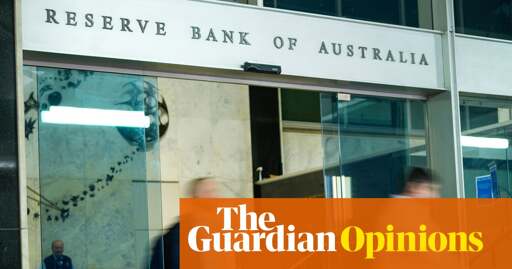Guardian Economist Greg Jericho shows - with interactive graphs - how the RBA’s interest rate policies have missed the mark and depressed Australian living standards in an unprecedented way.
The problem is we’re a nation bound to homeowners, when each year less and less of are able to afford such a luxury as a roof over our heads.
Fuck the RBA and any “economic” wins that don’t translate to a better life for Australians.
where exactly did the rba get it wrong? spending is repressed because of the rba as he points out, but is he saying inflation isn’t a problem? that we are not spending too much even though inflation is up and the rba has indicators to suggest it’s us spending on services (remember the haircuts comment?) the article feels half finished to me
The rba aren’t too blame, they have two tools and two missions. These missions were set and confirmed by multiple governments. We as a population have long been told and believed that the free market and government money will solve the housing crisis despite plenty of contrary evidence
Inflation hits the most vulnerable the hardest. Their incomes and savings are eroded directly by inflation
Those who already own houses or are mainly invested in stocks are able to weather inflation long term (while being affected short term by higher interest interest rates on debt)
If inflation is still high, and unemployment not rising, in who’s interest would we lower rates?
Is it such a bad thing for home borrowers (which is who we’re really talking about) to have less disposable income while preserving the purchasing power of those who at best would like to buy, or at worst are already living paycheck to paycheck on minimum wage?
The problem is that the RBA increased interest rates to discourage individuals from borrowing more. The problem is that We had already borrowed so much that the increase was crippling.
They should have only increased rates on new loans and reduced rates on existing loans.
That’s an interesting concept but not one the RBA has any control over. You’d have to freeze old loans somehow too to prevent people redrawing and consolidating debt into old facilities? And get all the banks to adopt it? What about international debt? Don’t think would be doable in practice
In the US, the vast majority of mortgages have a fixed rate over decades.
90% of mortgages are fixed-rate for 30 years according to this page: https://www.mortgagecalculator.org/helpful-advice/how-many-years-mortgage-loan.php
I don’t know the details of how that works, but yeah, it’s possible for the vast majority of home borrowers to be on fixed rates.
I don’t know the details of how that works, but yeah, it’s possible for the vast majority of home borrowers to be on fixed rates.
Essetially “socalism”, In the US Goverments backed Fannie Mae and Freddie Mac, so commercial banks had to compete for loans.
We’d need a government bank to do the same, I think its part of The Greens policy to reestablish one and offer them? but we’d need way more voters to pivot Green, thay seems unlikely, so we’re left with the same stupid, repeating the same stupid mistakes… we sold the last Government bank off.
Or legislation and that’s never going to happen with ALP/LNP.
Fixed rate for the entire term? Fascinating
That’s a good deal if you get s good deal.
not just the yanks, I have a mate from france I caught up with earlier this week who could not comprehend how a home loan had a variable rate. She thinks we’re all insane.
…







